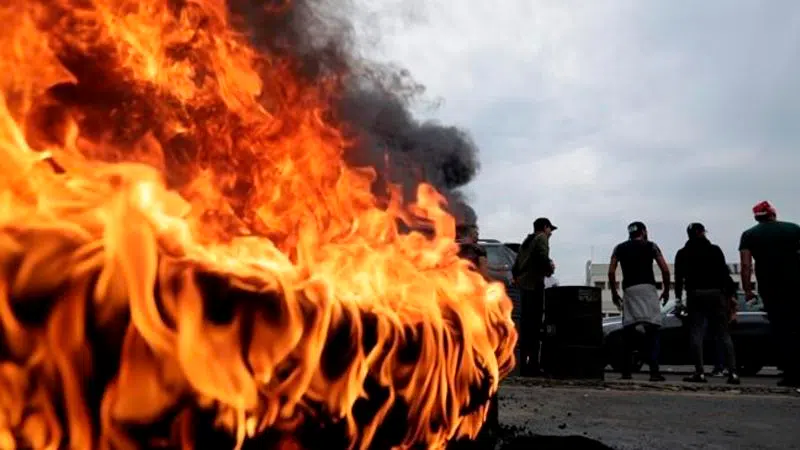
Lebanese protesters get creative as they block roads
BEIRUT — On a main thoroughfare in Beirut on Monday, Lebanese protesters set up a living room with an area rug, a couch and a refrigerator. On another, they held a morning yoga class. And on a third road, a band with an accordion player sang one of the newest slogans of Lebanon’s anti-government protests.
“Hela, hela, hela ho, the road is closed, sweetie,” the song went — a reflection of how the protesters have grown more creative as they have blocked roads as part of massive anti-government demonstrations underway for the last 12 days.
The protests are directed at the political elites who have dominated the country since its 1975-1990 war, and who many accuse of corruption and economic mismanagement. The demonstrations have paralyzed the country, and the prolonged closure of banks has raised fears of an economic collapse.
“We are all tired, and we understand that people want to get back to their work, but we cannot stop now,” said Dina Yaziji, who joined the protests because, like many young Lebanese, she cannot find employment.


